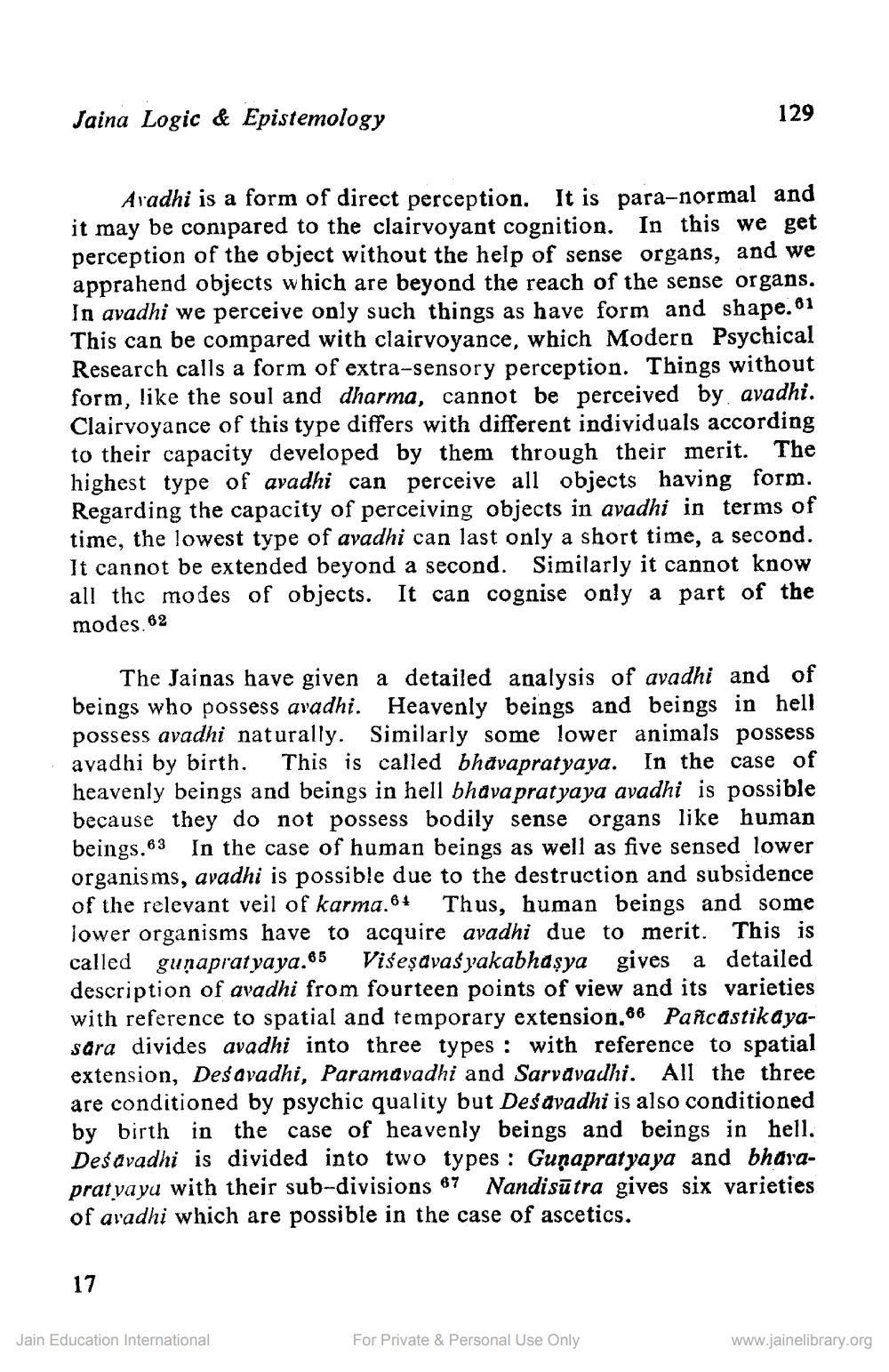________________
Jaina Logic & Epistemology
129
Avadhi is a form of direct perception. It is para-normal and it may be conipared to the clairvoyant cognition. In this we get perception of the object without the help of sense organs, and we apprahend objects which are beyond the reach of the sense organs. In avadhi we perceive only such things as have form and shape. 81 This can be compared with clairvoyance, which Modern Psychical Research calls a form of extra-sensory perception. Things without form, like the soul and dharma, cannot be perceived by, avadhi. Clairvoyance of this type differs with different individuals according to their capacity developed by them through their merit. The highest type of avadhi can perceive all objects having form. Regarding the capacity of perceiving objects in avadhi in terms of time, the lowest type of avadhi can last only a short time, a second. It cannot be extended beyond a second. Similarly it cannot know all the modes of objects. It can cognise only a part of the modes. 62
The Jainas have given a detailed analysis of avadhi and of beings who possess avadhi. Heavenly beings and beings in hell possess avadhi naturally. Similarly some lower animals possess avadhi by birth. This is called bhävapratyaya. In the case of heavenly beings and beings in hell bhava pratyaya avadhi is possible because they do not possess bodily sense organs like human beings.63 In the case of human beings as well as five sensed lower organisms, avadhi is possible due to the destruction and subsidence of the relevant veil of karma.64 Thus, human beings and some lower organisms have to acquire avadhi due to merit. This is called guņapratyaya.65 Visesavas yakabhasya gives a detailed description of avadhi from fourteen points of view and its varieties with reference to spatial and temporary extension.66 Pañcâstikayasara divides avadhi into three types : with reference to spatial extension, Des avadhi, Paramavadhi and Sarvavadhi. All the three are conditioned by psychic quality but Deśavadhi is also conditioned by birth in the case of heavenly beings and beings in hell. Dešavadhi is divided into two types : Gurapratyaya and bharapratyayu with their sub-divisions 67 Nandi sūtra gives six varieties of aradhi which are possible in the case of ascetics.
17
Jain Education International
For Private & Personal Use Only
www.jainelibrary.org




